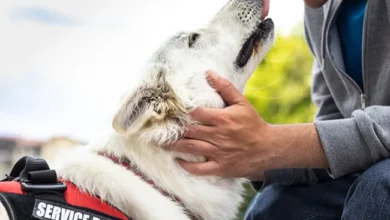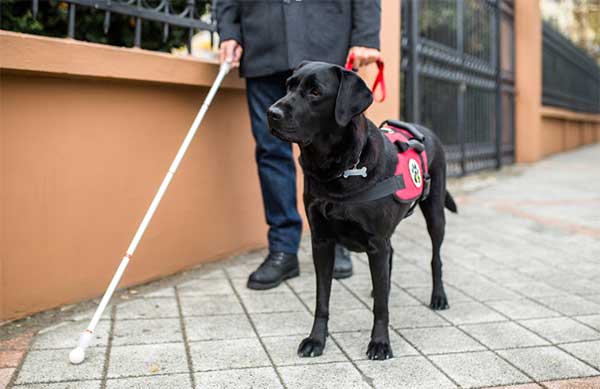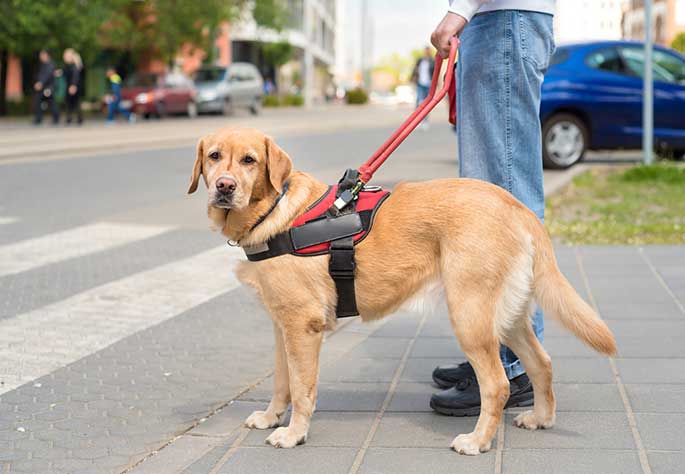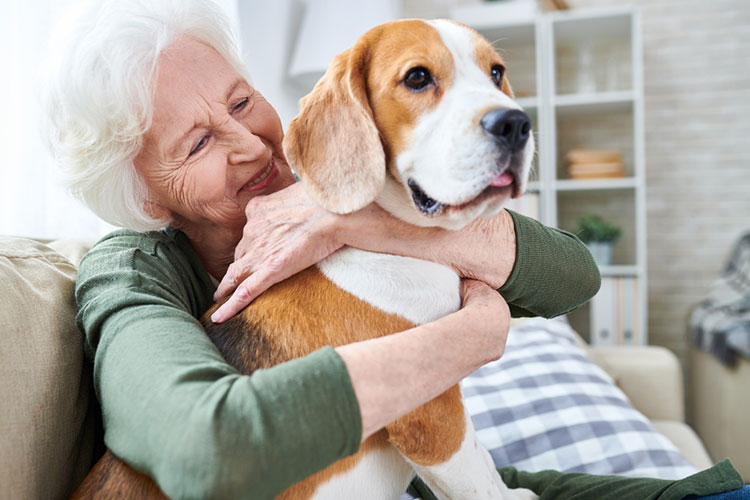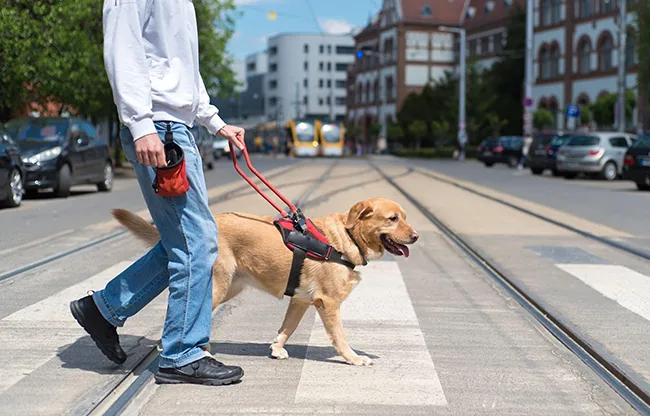
Service dogs are crucial in assisting individuals with disabilities, offering them independence and a better quality of life. Their training equips them to perform tasks that their owner might find challenging or impossible to do on their own.
From guiding the visually impaired to alerting individuals with hearing impairments or detecting health emergencies, their skills are invaluable.
Despite their significance, a common question arises: Are service dogs allowed everywhere?
This article will answer the question by discussing legal frameworks, societal attitudes, and the challenges service dog owners face in various public and private spaces.
What Are Service Dogs?
Service dogs are a unique category of working animals, specifically trained to perform certain tasks that assist individuals with disabilities. Unlike the average pet, these dogs undergo specialized service dog training to master skills tailored to the needs of their handlers.
This could involve anything from guiding someone with visual impairments, alerting a person with hearing loss to specific sounds, or even detecting imminent medical crises in those with conditions such as epilepsy or diabetes.
Now, it’s essential to distinguish service dogs from other support animals as each category has different rights:
Emotional Support Animals (ESAs): Their primary role is to offer emotional stability, and their presence can be therapeutic. However, because they aren’t trained for specific tasks related to a disability, they don’t have the same legal privileges as service dogs.
Therapy Animals: They play a therapeutic role by interacting with multiple individuals. Unlike service dogs, which are trained to assist one specific individual, therapy animals work in broader environments like hospitals and nursing homes, offering comfort to many.
Where Are Service Dogs Allowed?
Service dogs are given exclusive rights in public spaces compared to other support animals. However, the extent of these rights varies depending on local laws and regulations.
Here are the primary places where service dogs are permitted and any potential exceptions.
Public Spaces and Facilities
Service dogs are allowed in all public places by law. These places include restaurants, stores, hotels, theaters, and public transportation. The reason is simple: individuals with disabilities should have the same access to public spaces as anyone else, and if a service dog is essential for that access, the dog should be allowed.
Private Properties and Businesses
Private businesses that serve the public, such as restaurants, hotels, and retail stores, must allow service dogs. However, they can ask two questions:
- Is the dog required due to a disability?
- What task is the dog trained to perform?
They cannot, however, ask about the person’s disability or demand any documentation for the dog.
Housing and Accommodations
Various housing laws mandate that landlords and housing providers make reasonable accommodations for individuals with disabilities. This includes allowing service dogs even if the property generally prohibits pets. However, the handler might be responsible for any damages caused by the dog.
Workplaces
Employees with disabilities can have their service dogs at work, provided the dog doesn’t disrupt the workplace or pose a threat. Employers may need to make reasonable accommodations, such as providing a space for the dog to rest.
Educational Institutions
Students with service dogs can typically bring their dogs to school, college, or university. The institution might have specific guidelines or procedures, but generally, they provide the right to access with a service dog.
Exceptions and Restrictions
While service dogs are allowed at all places the general public can access, there are situations where their presence might be restricted for safety or health reasons. For instance, sterile environments like certain parts of a hospital might be off-limits. Other places include private clubs and worship places like churches and mosques.
Legal Framework: Service Dogs and Their Handlers’ Rights
Understanding the rights of service dogs and their handlers requires exploring the laws and regulations, primarily guided by the Americans with Disabilities Act (ADA).
Americans with Disabilities Act (ADA)
The ADA prohibits discrimination against people with disabilities and ensures equal opportunities.
Public Access: Under the ADA, businesses and organizations that serve the public must allow people with disabilities to bring their service animals into all areas where customers are generally allowed.
Inquiries by Businesses: Staff can ask only two specific questions, as previously mentioned, but cannot request any proof or certification of the dog’s status.
Fair Housing Act (FHA)
While the ADA covers many areas, the FHA specifically addresses housing. The FHA ensures that a person with a disability can live with their service animal regardless of any “no pets” policies. Landlords can’t charge extra fees but can hold tenants responsible for damages.
Air Carrier Access Act (ACAA)
Traveling by air with service dogs has its set of rules. Under the ACAA, airlines must permit service animals to accompany passengers with disabilities. Some airlines might have specific requirements but can’t charge additional fees for service animals.
State Laws
Beyond federal laws, individual states might have regulations that offer additional protections or further define the rights of service dog handlers.
Respect and Non-Interference
Most states have laws making harming or interfering with a service dog illegal. Any act that inhibits the dog from performing its duties, like distracting or harming it, can lead to penalties.
Wrapping Up
The lives of those with a disability are made easier with a loyal companion by their side: a service dog. These aren’t ordinary pets; they are lifelines, confidants, and guardians rolled into one. Trained through dedicated service dog training programs, they become an extension of their handlers, offering assistance and helping them lead better lives.
Generally, service dogs are allowed to go everywhere the general public can go, except for a few places like private clubs, certain hospital areas, and places of worship.
